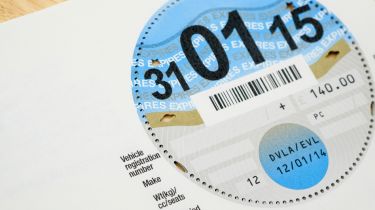Electric and hybrid car tax refunds: how to claim yours
The policies around claiming surplus road tax have changed; if you’re selling your hybrid or electric car, we’ve got all you need to know

Once, when owners paid road tax (VED) based on their car’s exhaust emissions, there were deals to be done or money to be made by selling a used car with one or more months’ tax remaining. In some cases, unused road tax could be worth hundreds of pounds – potentially sweetening negotiations between buyer and seller.
Now, however, a used car can't be sold with remaining road tax, meaning those trading in their car need to claim back the remaining months’ VED at the point of sale. Equally, those buying a car need to make sure it's taxed appropriately before they drive it on public roads.
It’s essential anyone selling a car informs the Driver and Vehicle Licensing Agency (DVLA) as soon as the car changes hands; the original owner is liable for a hefty £1,000 if this isn’t done immediately. You can do this online, using the DVLA website.
Of course, the tax rules are different for hybrid and electric vehicles – the latter are ‘free’ to tax, although you still need to make sure you go through the proper process every six or 12 months to ensure it’s allowed to be used on UK roads.
Selling a hybrid car with road tax remaining
If you’re selling your hybrid car with a proportion of its road tax remaining, you now get those months’ back as a rebate. All hybrid cars are classed as ‘Alternative’ in the current fuel-type categorisation, and those costing less than £40,000 are subject to a flat annual VED rate of £135 – £10 less than a non-hybrid car.
Hybrid cars costing more than £40,000 (regardless of their CO2 emissions) pay £455 per year – again, a £10 discount compared to conventional petrol or diesel models.
By informing the DVLA you no longer own the car, you’ll automatically receive a cheque for the outstanding amount within six weeks. Note that this is sent to the registered keeper, as detailed on the car’s V5 document. Any direct-debit payments will be cancelled immediately.
Selling an electric car with road tax remaining
All pure-electric cars costing under £40,000 (new list price including options) are exempt from road tax. You still need to complete the necessary paperwork on a six-monthly or annual basis, but unlike with a petrol, diesel or hybrid car, there's no fee to pay.
Those costing more than £40,000 and registered before 1 April 2020 are subject to annual VED: a flat-rate payment of £320 a year for the first five years. Therefore, if you’re selling an electric car that cost more than £40,000 new, you’ll be due a rebate for any remaining road tax. Equally, if you’re buying one that breached that threshold when new, you’ll need to pay the necessary fees online before driving away.
All electric cars registered after 1 April 2020 are exempt from road tax – even those costing more than £40,000. Again, you’ll still need to apply for the car’s VED, but there's no fee to pay.
